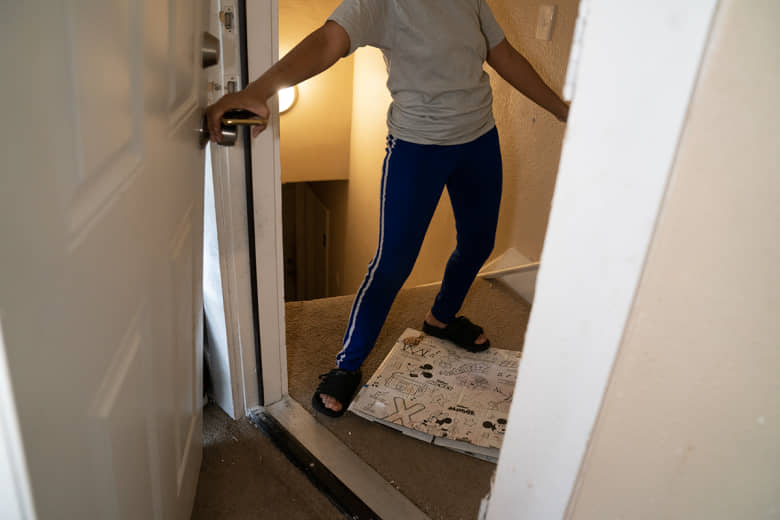Closing on a home purchase is an important step that requires coordination between the buyer, seller and lender. However, issues can sometimes arise that cause delays in the closing date. As a homebuyer, you may be wondering what recourse you have if your lender fails to complete the closing on the agreed upon date.
In this article, we will explore whether you can sue your lender for a delayed closing and what alternative options may be available.
Can i sue my lender for not closing on time?
Yes, you can sue your lender if they do not close on time as scheduled and agreed upon in the loan documents.
For a borrower to have a case against their lender, they would need to prove the lender acted negligently or in breach of contract. This could involve demonstrating the lender did not uphold their contractual obligations without reasonable cause or made errors that directly resulted in the delayed closing.
Simply facing an unintentional or minor delay is typically not grounds to sue, as lenders are allowed reasonable leeway for events outside their control. Consultation with a real estate attorney is advised to evaluate the strength of a potential case.
Related: Can A Landlord Sue For Unpaid Rent Without Lease?
What are some common reasons for delayed closings?

There are various issues that could cause a lender to delay closing. Title or survey issues may arise requiring additional time to resolve any liens, judgments or property disputes. The appraisal process or a borrower's mortgage application could experience hitches resulting in delays.
Unrealistic contract timeframes or problems uncovered during final walkthroughs are other potential culprits. Communication with the lender about the reason for delay is important to understand if legal recourse may be warranted.
What steps can be taken if closing is delayed?
If the scheduled closing date passes without completion, there are steps borrowers can take before resorting to a lawsuit:
-
Contact the lender in writing to express concerns and request an explanation for the delay and a new closing date.
-
File a complaint with the Consumer Financial Protection Bureau or state banking regulatory agency if the lender is unresponsive or the reason for delay is due to the lender's error or negligence.
-
Consider title insurance to protect the property from liens if closing extends beyond the scheduled date.
-
Negotiate a new closing date that both parties can commit to while protecting rights under the original contract.
-
Consult a real estate attorney to understand options available like terminating the contract or seeking monetary damages.
-
Ensure all documentation was submitted correctly and in a timely manner on the borrower's end to avoid contributing to delays.
Communication is key to clarifying responsibilities before determining if legal action is warranted.
What are potential outcomes of suing a lender?
If a borrower decides to sue their lender for a delayed closing, the expected outcomes would depend on proving the claims made:
-
Compensatory damages may be awarded to reimburse financial losses from the breach of contract such as additional living expenses, lost wages or new financing costs.
-
Reimbursement of attorney fees and court costs involved in the lawsuit.
-
Courts can impose punitive damages to penalize a lender's negligence and serve as a deterrent, although these require a high standard of proof.
-
Termination of the original contract and relieving the borrower of obligations if closing cannot be timely completed.
-
Settlement agreements where the lender provides credits or makes the borrower whole without court involvement are also a possible resolution.
The potential to recover damages makes legal action worth considering in severe cases of lender fault but success depends on individual facts and circumstances.
Are there alternatives to suing a lender?
While lawsuits are an option in clear misconduct by the lender, less adversarial approaches exist that parties may find preferable:
-
Mediation involves facilitated discussions with a neutral mediator for settlement without determining fault. This method keeps control of the solution in the hands of the involved parties.
-
Arbitration submits the case to an impartial third-party arbitrator who makes a final and binding decision. Arbitration is typically faster and cheaper than suing.
-
Loan modifications can potentially resolve issues by amending loan terms to aid affordability rather than declaring default or breach.
-
Refinancing may allow the borrower to use another lender in place of one delaying closing, if rate/terms can be improved.
-
Out-of-court settlements preserve business relationships where both sides negotiate without court costs or time commitments.
Exhausting alternative resolution methods is recommended before resorting to costly litigation that may burn bridges if the lender relationship continues post-closing. Consulting legal counsel ensures all options are fully explored.
Conclusion
In conclusion, while borrowers can potentially sue lenders for contract breaches resulting from closing delays, successful litigation requires proving negligence or other fault. Communication with the lender and regulatory complaints represent first steps, while mediation, arbitration and negotiated solutions are usually preferable to lawsuits if closure can be reached.





